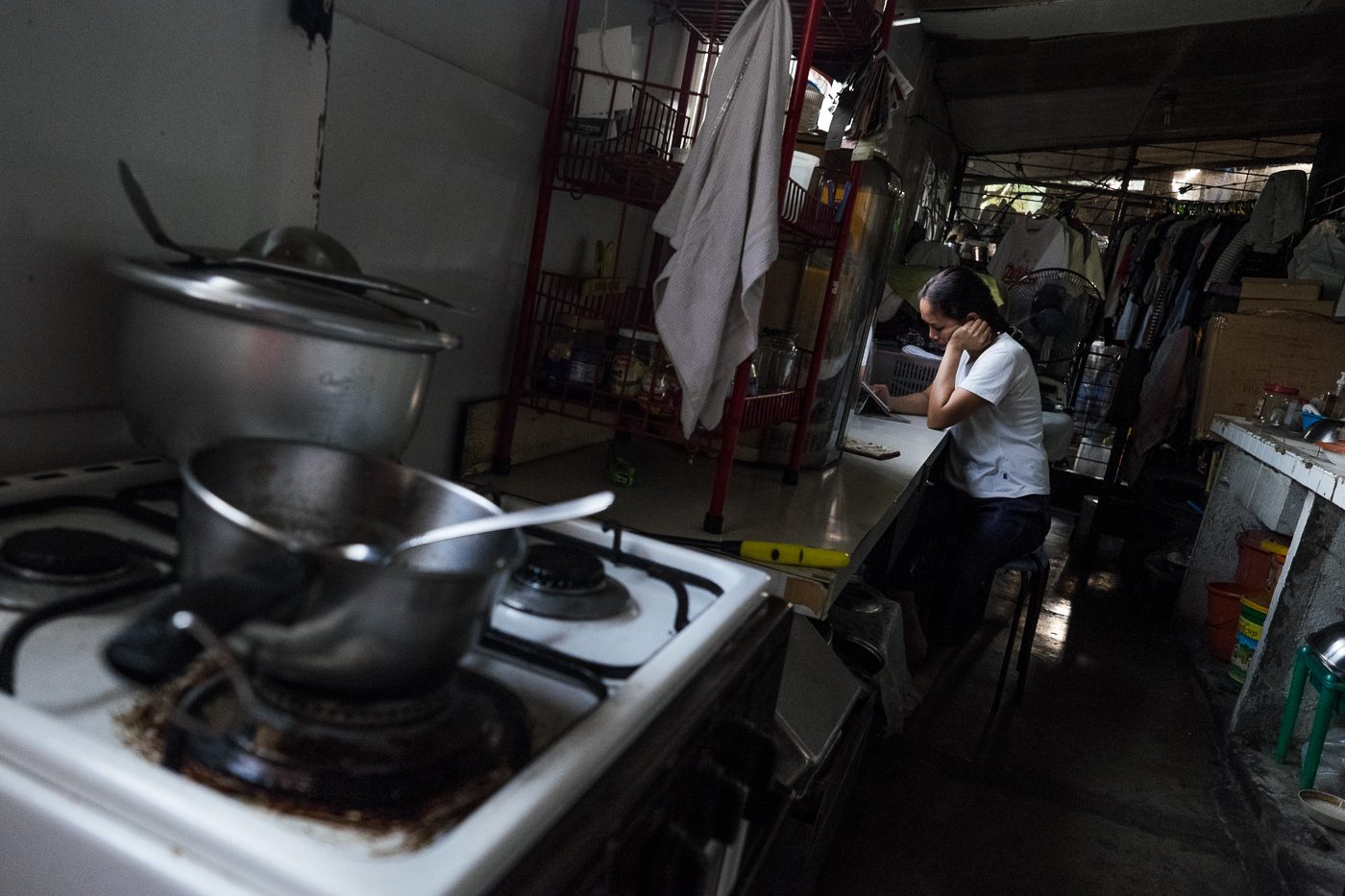SUMMARY
This is AI generated summarization, which may have errors. For context, always refer to the full article.

MANILA, Philippines – Esther* considers herself lucky enough if she gets to sleep more than 30 minutes in a day.
“Talagang 24 hours ako gumagawa ng [trabaho]. ‘Pag meron akong gagawin, parang ‘di ko maiwanan. ‘Pag natapos ko, siguro sumasaglit ako matulog. Siguro mga 30 minutes. Pagkatapos noon, kinabukasan na naman,” she said.
(I work for 24 hours. I really can’t stop doing my tasks. It’s only after I’ve finished them that I can sleep for around 30 minutes before the next day comes.)
The 45-year-old mother works as a domestic helper to provide for her family. But even if she loses sleep over work, her family continues to struggle financially because she does not receive payment from her employers on time.
“Kunwari kasambahay ka, ‘pag iyong tumuntong na ang petsa ng sahod, do’n sana nila binibigay pero hindi eh. Sasabihin ko pa sa amo ko kailangan ko iyong sahod ko, kung puwede makuha. Saka lang nila ibibigay,” she said.
(If you’re a house helper, your employers should give you your salary on its due date. But my employers don’t give it to me. I’d have to tell my employers that I need my salary and that’s the only time they will give it to me.)
It’s not usually the case, according to Esther, who has been a domestic worker in Metro Manila since 1989. The difference is that her current employers are her distant relatives.
“Mga kamag-anak ko kasi kaya ‘di po nila binibigay ang sahod ko (They are my relatives that’s why they don’t give me my salary),” she said.
She also complained she pays her Social Security System (SSS) membership voluntarily, instead of her employers doing it for her as mandated by Republic Act 10361 or the Batas Kasambahay (Domestic Workers Act).
Like Lola
Esther’s situation brings to mind the unthinkable story of Eudocia Pulido whose story was told in the viral article of Pulitzer Prize-winning Filipino-American journalist Alex Tizon.
The piece “My Family’s Slave” narrates how Pulido was taken by a distant family relative to work as a domestic helper and attend to the needs of Tizon’s mother, who was 12 years old at the time. Pulido served the family for decades, even after they went to the United States and settled there. She was never paid a cent.
Pulido’s tale has happened to other domestic workers through the years – maybe in less cruel circumstances but still in abusive forms.
Himaya Montenegro of the United Domestic Workers of the Philippines said the situation of domestic workers is worse when their employers are their own relatives.
Montenegro, who herself was previously hired by a relative, said workers cannot assert their rights to their employers because utang na loob (debt of gratitude) is pervasive in the Philippines.
“Hindi ka magrereklamo kasi parang kultura iyong nananaig. ‘Di na lang ako magsasalita dahil iyong tinutulong ng mga kamag-anak kong ito sa iba ko pang mga kapatid, sa iba ko pang kamag-anak, baka maisumbat pa sa akin,” she explained.
(You won’t complain because the culture prevails. I won’t speak because the help extended to my siblings and other relatives might be rubbed in my face.)
She said they have members who were employed by relatives who were not paid their salaries. There have even been cases of sexual abuse because these workers are not given proper quarters to stay in. (READ: Fast facts on Filipino domestic workers)
These are on top of the usual cases of underpaid workers and those forced to eat spoiled food that are still happening now, said Montenegro.
Government’s intervention
Enacted in 2013, the Kasambahay Law, considered landmark legislation not just in the Philippines but also in other countries, aims to protect the rights of these marginalized workers.
The Department of Labor and Employment (DOLE) Bureau of Workers with Special Concerns (BWSC) is the lead implementing agency of the law.
BWSC Director Cha Satumba said the law has made strides in ensuring social protection for workers since their employers are now becoming sensitive to their needs and rights.
They saw improvements in the conditions, especially as more workers are now speaking out. As of March 21 this year, Satumba said DOLE has settled up to around 592 cases or P3.5 million worth of unpaid salaries.
But she admitted implementation has yet to be intensified in the grassroots level. One challenge she cited is the absence of DOLE offices in the provinces, since the agency only has regional offices.
Here lies the implementation problem because domestic workers’ employment is informal in nature. DOLE has permission to inspect companies or formal workplaces, but Satumba said they cannot simply inspect private homes.
“We are really asking the help of the LGUs because they are under the barangay level. Those in the barangay would know how to best help the workers,” she explained.
The Department of the Interior and Local Government (DILG) released guidelines for household workers to register with barangays, but not all have been complying.
The BWSC is cooperating with agencies such as the Department of Social Welfare and Development (DSWD) and the DILG when it comes to rescue and rehabilitation of abused workers. But this only happens when cases reach their office.
Satumba said localization is their next step in boosting the implementation of the law.
“We have to have models in the lcoal government units and document how it is done in specific areas so we know how can we replicate these models,” she said, citing some provinces such as Cavite where there is an award-giving program to model employers. – Rappler.com
*not her real name
Add a comment
How does this make you feel?
There are no comments yet. Add your comment to start the conversation.